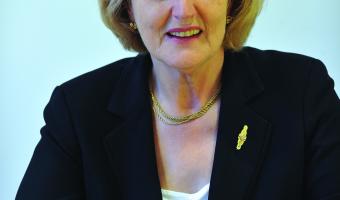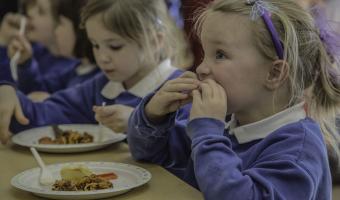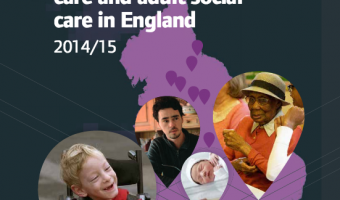
Not only that, but caterers in hospitals and care homes are gearing up for increased winter demands, with many using this time to prep new menus and winter events.
Routines are back in place after the hustle and bustle of the summer months, and as nature shows her most beautiful colours, I find that I'm thinking about seasonality and abundance at this time of the year.
And along with that, we have much to celebrate and showcase with the changing of the seasons. We have British Food Fortnight taking place from 26th September through to 12th October giving us the chance to showcase our local larders, and our connections to seasonal, local produce.
This year, the campaign is being supported right across the length and breadth of the country, with new logos for the devolved nations available to highlight provenance and to help demonstrate how our teams support and purchase from their local producers and supply chains, supporting community wealth building and connecting people with place.
Indeed, there seems to be a significant amount of interest in public procurement at the moment, with political and societal actions being taken to – rightly – hold us to account and ensure that public money is creating food systems change and, in part, is reinvested in local food systems.
In Scotland, we have seen the question of whether we are doing enough to unlock the power of public procurement being discussed in various Scottish Parliament committees and in the Parliamentary chamber.
And last month we saw the publication of the Follow the Carrot report that highlights the potential opportunity to support farming and economic growth whilst tackling climate action and providing better quality meals in English schools, should the UK Government opt to introduce Universal Free School Meals in England, with the potential prize being a £600m return.
We continue to be supported in testing out these models by academic partners and enthusiastic grassroots teams across the UK in bringing this work to life, be that the Veg in Schools work in Wales, or the Procurement for Good project, showing that we can procure efficiently using a food hub approach, and achieving the aim of getting more locally grown, climate friendly food onto public plates.
It's an exciting time for public food. Yes, the budgetary challenges will always curtail our ambition, but by doing things slightly differently with what we have, and creating the evidence base that change will deliver a financial return, we are not just telling but showing our politicians and decision makers the change that public food can have.
And this impact is not just on those who receive those nutritious meals, but on treasury receipts, on business growth and on connecting people with the places in which they live.








